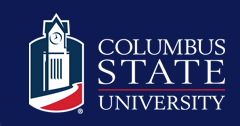Abstract
Academic expertise has traditionally served as the measure of faculty’s effectiveness in the classroom. Twenty-first century changes in the landscape of higher education have brought the need for sound pedagogy as a foundational tool in the college classroom. Faculty learning communities (FLCs) are an effective method to facilitate the development of pedagogy, which, in turn, has shown to have a direct effect on student success and graduation rates. This article examines the experiences of two faculty members at a Midwestern university who developed a 10-week inter-disciplinary FLC that was offered over 5 semesters, as well as participant feedback.
This is an original work
1
This work has not been previously published
1
IRB approval verification
Yes
Recommended Citation
Brez, C., & Behrendt, L. (2023). Lessons Learned: Using Faculty Learning Communities to Foster Pedagogical Skills and Cultivate Community. Perspectives In Learning, 20 (2). Retrieved from https://csuepress.columbusstate.edu/pil/vol20/iss2/2
Included in
Curriculum and Instruction Commons, Scholarship of Teaching and Learning Commons, Teacher Education and Professional Development Commons

